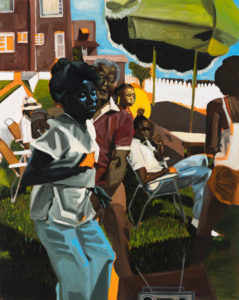
Jerrell Gibbs: American, b. Baltimore, MD, Lives and works in Baltimore, MD
Quiero Amor, 2019
About:
Jerrell Gibbs retraces family memories, examining the origin of his own life by representing intimate and instantly joyous moments. While affirming the multilayered experience of the African-American diaspora, Gibbs plunges the viewer into an immersive experience, the realm of his childhood.
Growing up in Baltimore influenced his perspective of socio-economics, body politics, race, economic disparities and their influence on one another. Through his figurative portraits, Gibbs accentuates banal representations of black identity by depicting empathy, inviting the possibility for a spiritual connection. The works are adapted from small polaroids, adapted into life-size paintings. The artist draws from revised characters in his own life and narratives such as Charles M. Schulz’s Peanuts, mimicking their playful illustrative style.
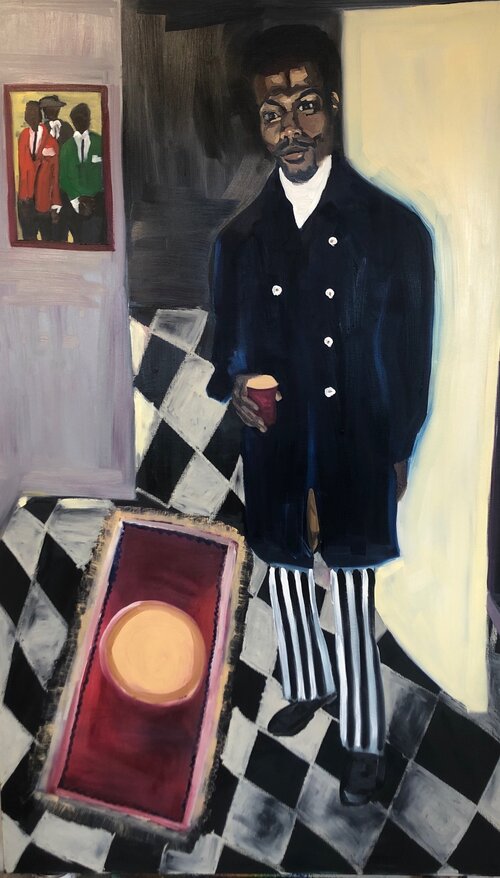
Fall Snow, 2019
Gibbs will graduate with an MFA from the Maryland Institute College of Art, Baltimore, MD in 2020. He has exhibited at the Reginald F. Lewis Museum, The Galleries at CCBC and The Gallery at Howard University. His work appears in the permanent collection in the Harbor Bank of Maryland. (text website artist)
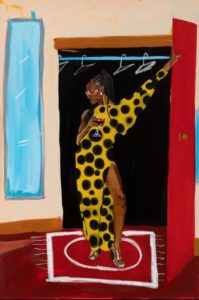
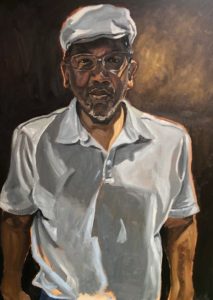
It’s You, 2020/El Maestro, Paul Rucker, 2018
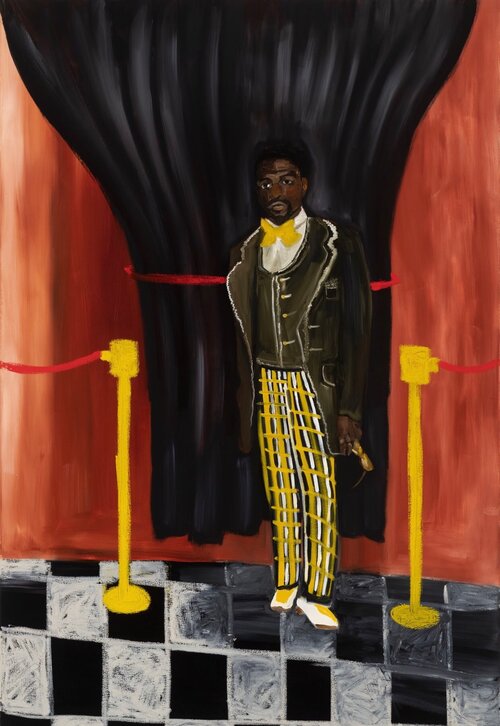
We Out, 20192.
Jerrell Gibbs retraces family memories, examining the origin of his own life by representing intimate and instantly joyous moments. While affirming the multilayered experience of the African-American diaspora, Gibbs plunges the viewer into an immersive experience, the realm of his childhood.
Growing up in Baltimore influenced his perspective of socio-economics, body politics, race, economic disparities and their influence on one another. Through his figurative portraits, Gibbs accentuates banal representations of black identity by depicting empathy, inviting the possibility for a spiritual connection. The works are adapted from small polaroids, adapted into life-size paintings. The artist draws from revised characters in his own life and narratives such as Charles M. Schulz’s Peanuts, mimicking their playful illustrative style.(text Mariane Ibrahim Gallery)
